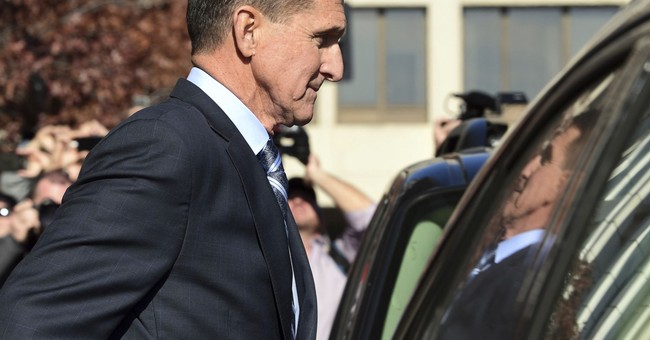
Benjamin Wittes and Quinta Jurecic turn to the pages of The Atlantic to pen their latest attack on the motion filed by the Department of Justice to dismiss the prosecution of Gen. Michael Flynn. Are they were pointing the finger of blame at Susan Hennessey for all the errors in their effort together last week by not inviting her to join this one? Hmmm.
After a short opening where they acknowledge and lament the likelihood that Judge Emmet Sullivan will go along with the motion and dismiss the case, they nevertheless pose 13 questions about the matter in the manner they would like Judge Sullivan to pose them to the DOJ Official who appears at the hearing.
Some of the questions are straight-forward and modestly interesting, and in response, I try to provide a straight-forward answer.
Other questions include either a basic misunderstanding of the law or facts, or reflect well-worn straw men that have been knocked down repeatedly already. I respond accordingly.
In a few others, they simply lead with their partisan “chins” and get what they deserve.
I’ve done three previous stories addressing many of these issues in a same or similar manner.
What Happens At Lawfare Blog When Ben Wittes’ Baby Cannon Explodes In His Face
Lawfareblog Doubles Down With An Actual Legal Author But Gets The Same Result
Mary McCord and the Federal Bureau of Purposes — NYT OpEd or The Onion
So, let’s use some bandwidth to “fisk” out what it is they have to say this time:
As with any motion before a federal district judge, this one provides an opportunity for the judge to question the government, which is now asking him to dismiss a case it has litigated since reaching a plea deal with Flynn in December 2017. He can explore the reasoning laid out in the department’s extraordinary brief. He can inquire into the rather obvious politics of the dismissal motion. And he can probe whether the Justice Department is really articulating a position it wishes to see courts apply in the future—or whether it is merely giving a windfall to a loyal ally of President Donald Trump.
I think DOJ is comfortable articulating the proposition that when a review of a case turns up the fact that the government lacked evidence of an element of the charge to which the defendant pleaded guilty, it will come to Court and announce that fact, since such a determination means no crime was actually committed by the Defendant who was in fact charged. It’s an ethical obligation, and basic human decency.
Same principle applies after someone pleads guilty to murder in exchange for a sentence of life without parole, and it is later determined through DNA analysis that the person who pleaded guilty did not commit the crime. Should the prosecution remain silent and oppose all efforts to redress the injustice done by the conviction – just because the defendant pled guilty to avoid facing a potential death penalty?
Flynn’s guilty plea acknowledged that he had lied to FBI agents about his phone call with Russia’s U.S. Ambassador Sergey Kislyak concerning new American sanctions on Russia, along with other matters. The criminal charge against Flynn hinged on the fact of his falsehoods being “material” under the relevant statute—that is, “predictably capable of affecting … [an] official decision.” Reversing its previous position that Flynn’s statements were material—a position with which both Flynn and Judge Sullivan concurred—the Justice Department now argues that Flynn’s lie could not have materially affected the FBI’s investigation, and therefore could not have been criminal, because in the department’s view, the investigation was not legitimate in the first place, the FBI having failed to produce the necessary predicate under its own rules to speak with Flynn.
I would note at the start that unlike their article last week, Wittes and Jurecic do NOT repeat their lie claiming that Gen. Flynn “advised” the Russians to disregard the sanctions. I guess maybe they do respond to a “newspaper across the nose” after all.
But when you read further, you see that they’ve simply traded it in for a new lie this time — the claim that the “department’s view” is that the “investigation was not legitimate in the first place. Nowhere in the DOJ motion does it take the position that “the investigation was not legitimate in the first place…” The question which is raised by DOJ’s motion is whether the investigation — first opened on August 16, 2016 — was open and legitimate on Jan. 24, 2017. This is more than five months, and in that time the FBI HAD INVESTIGATED Gen. Flynn and determined he was no longer a “viable” candidate for inclusion under the CH umbrella investigation. This determination was based on the finding of “no derogatory information” about him in that time. The clear import of the DOJ position is that CROSSFIRE RAZOR was legitimate, but CROSSFIRE RAZOR was closed on or before January 4, 2017. So the interview of Gen. Flynn on January 24, 2017, was not tethered to a then-still-legitimate counter-intelligence investigation.
Let’s now turn to the 13 questions they pose in a manner that they would like to see Judge Sullivan inquire of the DOJ representative at a hearing.
1. One striking feature of your brief is that it does not seem to allege that any of Flynn’s constitutional rights were violated or that you are conceding that any government action with respect to this investigation was illegal. Am I reading the government’s position correctly that you wish to dismiss this case without conceding that Flynn’s rights were actually infringed?
You mean other than the fact that he was charged and coerced into pleading guilty to a crime that did not happen? Not only is it a crime he did not commit, the actual underlying facts show that no crime took place. So, setting aside that minor inconvenience, I guess you could say nothing in the Gov’t brief “seems to allege that any of Flynn’s constitutional rights were violated” if you think being wrongfully convicted of a felony one didn’t commit doesn’t meet that standard.
2. Can you identify another case in which the government has argued for the dismissal of a guilty plea in the absence of either newly discovered evidence of actual innocence or the discovery of some sort of infringement of the defendant’s constitutional rights?
The Department’s discovery that — at the time of the interview — the FBI had no open criminal investigation, and that it had already closed, and not reopened, the counter-intelligence investigation of Gen. Flynn, is “newly discovered evidence”. The internal FBI documents are “newly discovered evidence” – at least to the Defendant. The discovery of an absence of evidence of a necessary element of the crime charged is “evidence of actual innocence.” If there was no evidence of a necessary element of the crime charged, then the crime did not happen — i.e., the Defendant was “actually innocent.”
[I think Ben was absent the day they taught “Evidence” in law school. What? He didn’t go to law school? Well, that explains a lot.]
3. As I understand your position, you are taking the view that Flynn’s case should be dismissed because the investigation lacked a proper predicate at the time the FBI interviewed him, and that his lies thus could not have been material. Are you aware of any other case in which the government has asked for dismissal of any charge on the ground that the investigation lacked a proper predicate? And are you aware of any other circumstances in which the government, in a false-statements case, sought dismissal because the supposed lack of a predicate for the investigation made the lies supposedly immaterial?
Typically counter-intelligence investigations do not develop into criminal cases, so this issue rarely arises. However, the case law is replete with instances of prosecuting entities at the state and federal level exercising their legal and ethical responsibility to report to the Court when they determine that a conviction has been gained in error. It is not uncommon that such circumstances involve the discovery of new information/evidence not previously known which calls into question the factual basis upon which the earlier conviction was obtained by way of guilty plea or verdict. DNA exonerations are the most obvious example as noted above. But not all lies to federal agents are crimes. This is one of those rare instances where that turned out to be the case.
4. The federal government commonly charges defendants with lying to investigators. Does the department intend to perform similar analyses of the predication and materiality of past false-statements cases and seek dismissals of other matters that may currently be pending presentencing that may run afoul of its new position?
The Government will come to the Court and report its findings each and every time it discovers information that establishes a lack of evidence supporting an element of the crime charged – “false statement” or otherwise. This is an ironclad ethical obligation all prosecutors must understand and respect. Normally these issues are fully explored in pre-trial phases, and at trial when required. Normally defense counsel is provided with discovery of all the evidence used to establish his/her client’s guilt, and that evidence addresses each element of the offense charged. In this case, defense counsel was not provided the evidence that bears on the issue of materiality. And in this case, the issues relating to materiality was known only to the Government.
5. In arguing that the investigation was not properly predicated, the government points to documentation of internal FBI discussions concerning whether or not to close its probe into Flynn—discussions that took place before the bureau learned of Flynn’s call with the Russian ambassador. This knowledge, in turn, prompted the FBI to continue its work and ultimately seek an interview with Flynn. The phone call, the government states, was not an adequate predicate for continuing the probe. Is the government’s position that, as a general matter of law or policy, the question of predication must be evaluated anew at each step of an investigation merely because there has been discussion of closing a case? Can the government cite another case in which it has ever taken that view?
That is an inaccurate recounting of events and exposes a serious ignorance in the understanding of how the FBI operates. The Bureau was not in “discussions”. The Bureau was not trying to decide “whether or not” to close the Crossfire Razor counterintelligence investigation. The Supervisor overseeing the investigation had directed the Case Agent to close the investigation, and the process for doing so included the drafting of a Closing Electronic Communication (EC). The Case Agent concurred and drafted the Closing EC because the CROSSFIRE HURRICANE team’s investigation of Gen. Flynn was complete, and the Case Agent set forth the findings of that investigation in the Closing EC. The only step which remained was for the Supervisor – the one who had given the instruction to prepare the Closing EC – to sign-off on the Case Agent’s document, which is standard procedure. But the factual status of the Crossfire Razor investigation was accurately set forth. It was complete and closed with a finding of no derogatory information, and that Gen. Flynn was not a viable candidate for further investigative activity as part of the Crossfire Hurricane investigation. There is no documentation in the FBI files that suggests anything in the content of Kislyak telephone calls changed that determination.
6. The FBI decided to interview Flynn after discovering his phone call with Ambassador Kislyak and learning that Flynn had lied about the matter to Vice President Mike Pence and White House Press Secretary Sean Spicer, both of whom then unknowingly repeated the lie to the public. Justice Department officials have since testified under oath that they worried this placed Flynn at risk of blackmail by the Russian government—because the Kremlin would, of course, know that Flynn had indeed spoken with Kislyak. Does the government really take the view that it would not be a counterintelligence threat for the Russian Federation to know that the national security adviser had lied to the vice president about contacts with its government related to election interference and sanctions? And does it really take the view that it is actually lawful to lie to the FBI in such an investigation?
This line of inquiry makes no logical sense. If the US government – the FBI – was aware of the discrepancy between what Gen. Flynn said to the Russian Ambassador, and what Gen. Flynn apparently said to VP Pence and Mr. Spicer, then there was nothing that the Russians could threaten to “expose.” The US government knew that Gen. Flynn apparently lied to VP Pence. How could the Russians threatening to reveal a fact already known work as some form of blackmail? “Blackmail” is a risk when UNKNOWN information is threatened to be revealed, not when known information is threatened to be revealed.
Regarding the question of “lawfulness”, it is axiomatic and a matter of “black letter” law that not all false statements to federal agents are crimes. That’s simply not a matter in dispute, and we are confident a learned jurist such as yourself understands that to be the case (even if hack journalists who think they understand obviously don’t).
7. Robert S. Litt, who served as general counsel to the Office of the Director of National Intelligence through the end of the Obama administration and was thus a sitting intelligence official during the relevant period, has posed the following hypothetical:
Someone who holds a grudge against you calls an FBI office and says that you are a Russian agent, providing fictitious details of invented meetings you have had with agents from Russia’s Federal Security Service. Before that call, the FBI had no information at all about you—let alone an open predicated investigation—but follows up with a public records search and an interview of you, and determines that there is no basis to the claim.
The logic of the department’s position in the Flynn case is that the person who maliciously reported you to the FBI could not be prosecuted for making a false statement, because at the time the statements were made, those statements “were not ‘material’ to any viable counterintelligence investigation … initiated by the FBI.” Or, to put it differently, the FBI can’t investigate whether someone is a Russian agent unless it already has evidence that the person is a Russian agent.
Is this a correct statement of the government’s position? And if not, why not?
The hypothetical mischaracterizes the argument made in the DOJ motion to dismiss, and mis-states the basis upon which criminal investigations can be initiated. The false report by the person with a grudge is not the result of an investigative activity initiated by FBI Agents. After the false reporting by the person with a grudge, an appropriate investigation would be opened to look into the allegations made, and a case agent would be assigned. That case agent would then conduct appropriate investigative activities to determine if the allegations had any substance. The “false” statements were not solicited, but they were of a kind likely to influence agency action, i.e., they led to the initiation of a criminal investigation. On that basis they are material. But the FBI had done nothing to solicit the original false allegations, which makes the hypothetical unlike the situation with Gen. Flynn where the false statements came only as a result of FBI investigative activity. In the latter circumstance, there must be a properly predicated investigation – criminal or counterintelligence – which supports the agents having made contact with a US person and asking questions which led to the false answers. In the absence of such an investigation, the answers to the questions are not “material” to any pending matter. The person making false allegations about another is not providing “answers” to questions posed by agents, therefore the hypothetical is inapposite and irrelevant to the issues before this Court — which Robert Litt certainly understands.
8. In your brief, you argue that even if the statements were material, the “government does not believe it could prove that Mr. Flynn knowingly and willfully made a false statement beyond a reasonable doubt.” Flynn, as you know, twice admitted in open court that he lied, and he signed a statement of the offensethat admitted, “In truth and in fact … Flynn then and there knew” that his statements were untrue when he made them to the FBI. What’s more, the charging document to which he pled guilty specifies that his actions were knowing and willful. Your brief makes no mention of the fact that such admissions by Flynn are themselves compelling evidence of his guilt. Do you doubt that they are admissible evidence that could be used against him at trial? And why did the government not take account of them as evidence in determining it would be unable to prove its case?
The Government offered that perspective merely to demonstrate that the decision to charge Gen. Flynn in the first instance was a “close call”, as was acknowledged publicly by former FBI Dir. Comey not long after the matter came to light. His comment is quoted in the motion. In fact, there is no evidence in DOJ records that the FBI ever referred the matter to DOJ for prosecution, and former Dir. Comey publicly stated that he did not believe Gen. Flynn would be charged. The matter was only taken up as a criminal investigation, leading to the filing of the Criminal Information, after it was taken over by the Special Counsel’s Office. Our review of the file simply acknowledges that had the case been evaluated as a “stand-alone” matter, unconnected to any other case or investigation – or the Special Counsel’s work – there is a substantial likelihood that it would not have been pursued because of objective uncertainties that existed in the evidence. Proving a “false statement” case at trial is problematic when the only two government witnesses who could testify to the defendant’s false statements have both written in official reports that they did not at the time believe the defendant was willfully being deceptive. Proving guilt beyond a reasonable doubt on the basis of such testimony is highly questionable.
Gen. Flynn’s admissions as part of the plea process, while interesting, do not solve the “materiality” problem. The existence of “materiality” is solely within the knowledge of the Government, and it is not a “fact” that a defendant can admit in the absence of discovery which reflects how the statements were material. Gen. Flynn was given no such discovery prior to signing the plea agreement.
9. The motion to dismiss this case is signed not by any career official of the Justice Department, but only by Timothy Shea, the U.S. attorney for the District of Columbia, who is a political appointee. Why did no career Justice Department official, including the assistant U.S. attorneys who have been litigating the case since it was transferred back to the Justice Department from the Special Counsel’s Office, sign the motion?
Acting U.S. Attorney Shea understood this would be a controversial decision, and made the determination that he would not have any subordinate Assistant United States Attorney have to answer for his decision. His is the only signature on the document because that was the way he wanted it.
10. In particular, I noticed the motion by Brandon Van Grack to withdraw from this case. Van Grack, a career prosecutor, worked on Special Counsel Robert Mueller’s team and has been on this case since the plea agreement was first filed. Indeed, he was one of the signatories to the plea documents. Can you explain to me why Van Grack wishes to withdraw from the case after working on it for so long?
Mr. Van Grack heads up the FARA Unit of the National Security Division of the Department of Justice, where he supervises the work of several DOJ Trial Attorneys. The Special Counsel’s Office no longer exists. Mr. Van Grack is not an Assistant United States Attorney for the District of Columbia, which is now responsible for this case. Given the decision to dismiss the case, there was no further work for Mr. Van Grack to do, and he has turned his full attention to his responsibilities as Chief of the FARA Unit. He also withdrew from related cases involving media requests for records in this matter.
11. While no career officials of the department appear to have participated in this decision, a number of political officials did. As I understand it, the attorney general himself asked the U.S. attorney in the Eastern District of Missouri, Jeffrey Jensen, to review the case. Jensen recommended dismissing it. And Attorney General William Barr accepted that recommendation, leaving Shea to file the brief currently before me. Barr, Shea, and Jensen are all political appointees. Am I to understand that allof the relevant players in this decision to dismiss a plea agreement whose lawfulness the government’s brief does not seem to challenge were political appointees?
As with all significant prosecutorial decisions, numerous individuals in senior positions in the Department of Justice were consulted. Mr. Jensen, in addition to being a Presidential appointment as U.S. Attorney, also has 10 years of service as a career AUSA, and prior to that, he was an FBI Agent for 10 years. Mr. Jensen was asked to use his 20 years of combined service as an FBI Agent and Federal Prosecutor to evaluate the investigation and prosecution of Gen. Flynn from start to finish, and consider the decisions made along the way against established DOJ principles and procedures. Upon completion of his review, he recommended that the case be dismissed.
12. The plea agreement between the government and Flynn specifies that the government cannot further charge Flynn for any of the conduct outlined in the plea documents. This includes not merely Flynn’s false statements about his communications with Russian Ambassador Sergey Kislyak concerning sanctions, but also Flynn’s operating as an unregistered foreign agent for the benefit of Turkey and his false statements both about that and about his negotiations surrounding a U.N. Security Council resolution. The plea agreement, however, also contains a provision specifying that if Flynn “fails specifically to perform or to fulfill completely each and every one of [his] obligations under this Agreement,” the government’s obligations under the plea deal cease.
Before the government sought to dismiss this case, Flynn filed a motion before the court to withdraw his guilty plea. Is the government’s view that Flynn violated his agreement by seeking to withdraw his plea? In other words, if I grant the government’s motion, is it the government’s view that a future attorney general could refile the charges—other than the specific false-statements charge I am being asked to dismiss—against Flynn that the original plea agreement immunized him against? Or does the government take the view that the original immunity provision of the plea agreement is still in force?
This is an inaccurate statement of the law. A Plea Agreement is a “contract.” Under the terms of that contract, the Government agreed to not further prosecute Gen. Flynn for any conduct that is set forth in the factual basis for the plea. But the plea agreement will be null and void upon dismissal of the case.
Stipulating to dismiss a charge “with prejudice” means that the filed charge(s) cannot be refiled. In this case Gen. Flynn was charged with only one offense – a single count of violating 18 U.S.C. § 1001. The only allegations in that filed charge relate to his conversations with the Russian Ambassador. The FARA allegations are EXPRESSLY described as “uncharged conduct” in the factual basis for the plea agreement. It is legally possible to file those charges since they have never been filed or dismissed.
13. Finally, can you assure me that the many scores of times President Trump has expressed sympathy for Flynn and stated his belief that his former national security adviser was wronged by the FBI have nothing whatsoever to do with the decision by the Justice Department that the continuation of this prosecution would not, as the department asserts, “serve the interests of justice”?
You mean like this:
“I continue to believe that [Hillary] has not jeopardized America’s national security,” Obama said in an interview on “Fox News Sunday.”
“What I’ve also said is that — and she has acknowledged — that there’s a carelessness, in terms of managing emails, that she … recognizes,”
“[Hillary] would never intentionally put America in any kind of jeopardy”
The Department of Justice MUST move to set aside a conviction anytime the Department comes into possession of information that establishes conclusively that no actual crime was committed by the person who was charged and convicted, regardless of who they are or the circumstances of their case.
“The United States Attorney is the representative not of an ordinary party to a controversy, but of a sovereignty whose obligation to govern impartially is as compelling as its obligation to govern at all; and whose interest, therefore, in a criminal prosecution is not that it shall win a case, but that justice shall be done. As such, he is in a peculiar and very definite sense the servant of the law, the twofold aim of which is that guilt shall not escape or innocence suffer. He may prosecute with earnestness and vigor– indeed, he should do so. But, while he may strike hard blows, he is not at liberty to strike foul ones. It is as much his duty to refrain from improper methods calculated to produce a wrongful conviction as it is to use every legitimate means to bring about a just one.”
United States v. Berger, 1935.
Author’s Note: Judge Sullivan screwed up the “materiality” determination during the Dec. 2018 hearing — they one where he asked if Flynn had committed treason. More on that later.
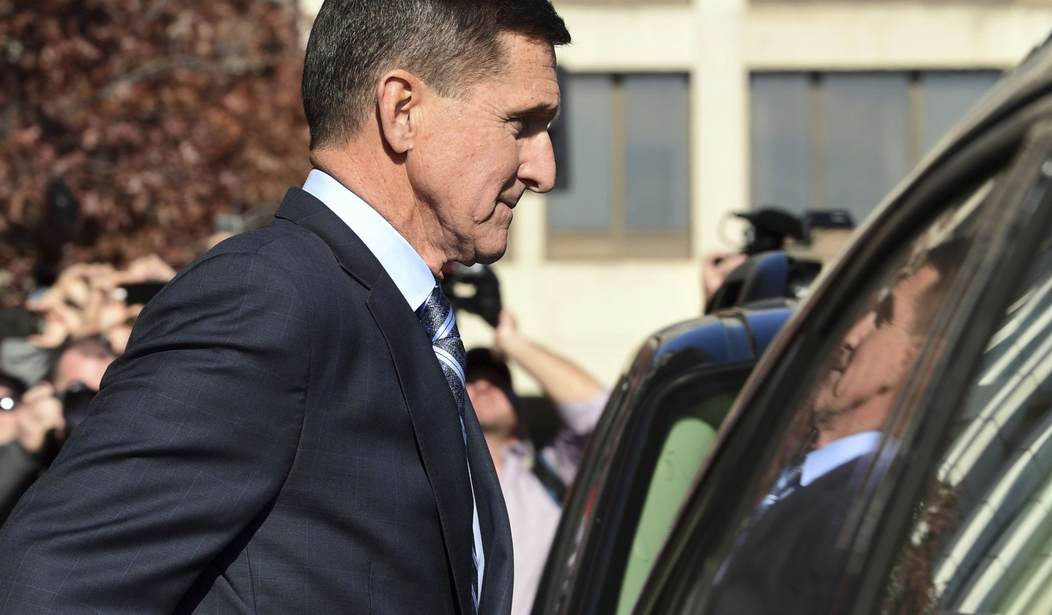


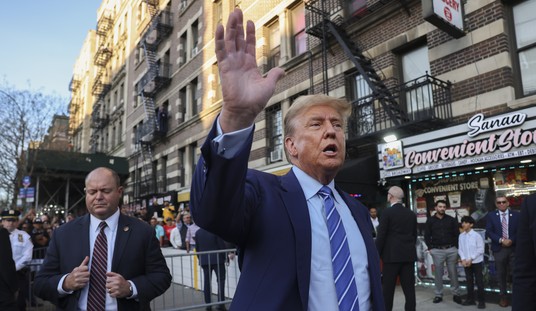


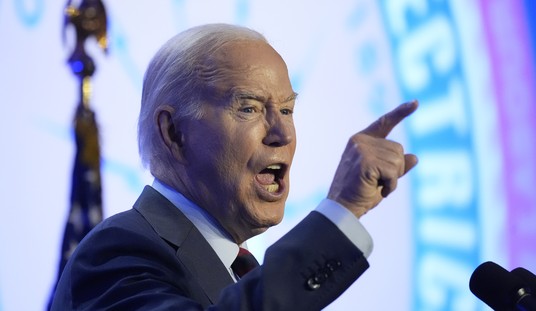




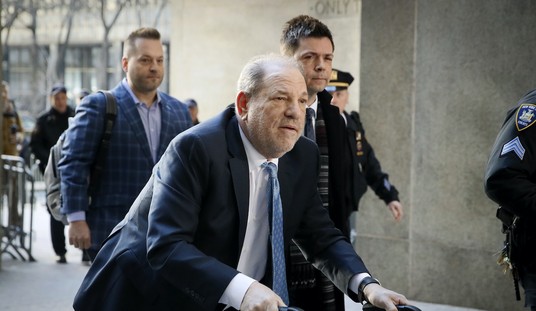



Join the conversation as a VIP Member